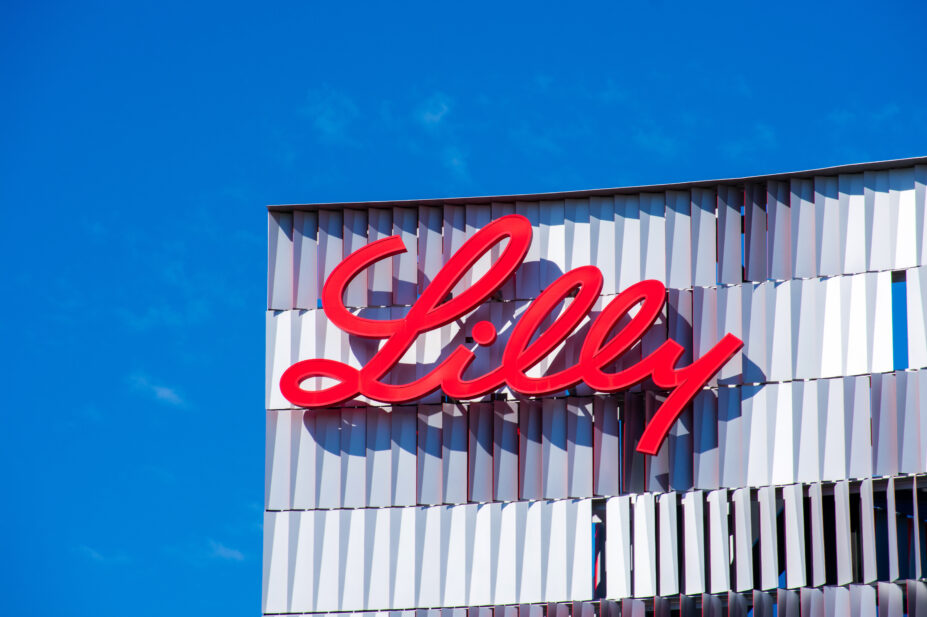
Shutterstock.com
Mounjaro manufacturer Eli Lilly has paused work on its UK biotech incubator ’Gateway Labs’ amid concerns over NHS spend on new drugs, it has told The Pharmaceutical Journal.
On 11 September 2025, a report from the Association of the British Pharmaceutical Industry (ABPI), highlighted the UK’s strengths in academia, research and patient data, but warned that low NHS spending on drugs makes pharmaceutical companies less likely to locate research and development here.
Christopher Stokes, president and general manager of Eli Lilly and Company in the UK, Ireland and Northern Europe, said the company had recently paused a potential investment in the UK while it awaited “more clarity on the UK environment”.
“The UK is currently an international outlier in life sciences competitiveness. There is great potential here, but we must see bolder action to address some of these critical factors that influence inward investment decisions,” he said.
Eli Lilly told The Pharmaceutical Journal that this referred to its development of UK ’Gateway Labs’, which provides facilities, amenities, resources and mentorship to pioneering biotechnology companies.
The development of the site formed part of an agreement with the UK government in October 2024.
However, a spokesperson for Eli Lilly told The Pharmaceutical Journal: “Lilly is not yet in a position to finalise our investment in a Lilly Gateway Labs site, as we are awaiting more clarity around the UK life sciences environment.”
The ABPI report said: “In many global boardrooms, the UK is now viewed as a contagion risk with practices that, if adopted by other markets, would threaten the sector’s ability to invest and innovate globally. As a result, the UK is increasingly being ruled out of consideration as a viable location for pharmaceutical investment.”
“Left unaddressed, these risks can outweigh the broader strengths a market can offer. This acts as a decisive barrier to entry, even if the scientific or economic fundamentals of an investment remain strong,” it added.
According to the ABPI’s analysis of the National Institute for Health and Care Excellence’s (NICE) appraisal data and ABPI survey data, more than 60 medicines or indications did not launch in the UK or were delayed between 2019/2020 and 2022/2023.
“Nearly 70% of these decisions were made because of the UK’s pricing requirements, including NICE thresholds and the additional value for flexible commercial arrangements,” the ABPI said.
The ABPI report also highlighted the UK’s strength in several areas of drug development that make it an attractive investment for pharmaceutical companies, which includes:
- 104 hospitals delivering more than 100 industry trials per year, which is third in the world behind Japan with 127 trials and the United States with 933 trials;
- Publishing a share of the top 1% most-cited medical publications globally;
- Being second in the world for top-ranked universities for life sciences and medicine, with the highest percentage of natural science, maths or statistics graduates in the world.
However, the ABPI ranked the UK as “moderate” in terms of overall number of clinical trials, set-up times, enrolment, quality and capacity of clinical trials infrastructure, visa access, and genomics infrastructure and expertise.
Richard Torbett, chief executive of the ABPI, commented: “The UK has a world-class science base and the potential to lead globally in developing the next generation of medicines and vaccines. But without a more competitive environment for investment, we risk losing out to other countries making bold moves to attract internationally mobile investment.”
Claire Anderson, president of the Royal Pharmaceutical Society, said: “Medicines are a fundamental part of our health services and life sciences are a crucial part of the UK’s economy. As the government looks to implement its life sciences sector plan and ten-year health plan, it is vital that pharmacy leadership is retained across the system, from commissioning through to delivery, to support patient access to medicines, ensure best use of the NHS budget, and boost economic growth.”
Responding to the report, a spokesperson for the government said that the UK has become “the most attractive place to invest in the world”, citing a survey of UK chief financial officers conducted by Deloitte in June 2025, in which a net 13% of respondents described the UK as ‘very’ or ‘somewhat attractive’ — placing it first alongside India.
“Through our life sciences sector plan, we’re taking decisive action to further unlock innovation, drive investment and boost growth.”
“We have already started delivering by investing up to £600m in the Health Data Research Service alongside Wellcome to accelerate the discovery of life-saving drugs, as well as committing up to £520m to the Life Sciences Innovative Manufacturing Fund, unlocking billions in private investment,” they said.
“This government is open to working collaboratively with the pharmaceutical industry — which is why we put forward a generous and unprecedented offer as a part of the review of VPAG [‘Voluntary Scheme for Branded Medicine Pricing, Access and Growth’], which is worth approximately £1bn over three years.”
1 comment
You must be logged in to post a comment.



You can invest at a high level as much as you want, but if NICE rejects anything new (thinking particularly about mental health here) where is the improvement in health? Esketamine for treatment-resistant depression was rejected on spurious grounds (e.g. the pharmacist on that guideline group who, along with everyone else had no experience of mental health, appears to state that mental health pharmacies we have problems with a Controlled Drug) and now zuranolone licensed one day, rejected by NICE the next day. Both drugs are for conditions for which there is no real alternative, unless of course you don’t understand the conditions and treatments available.